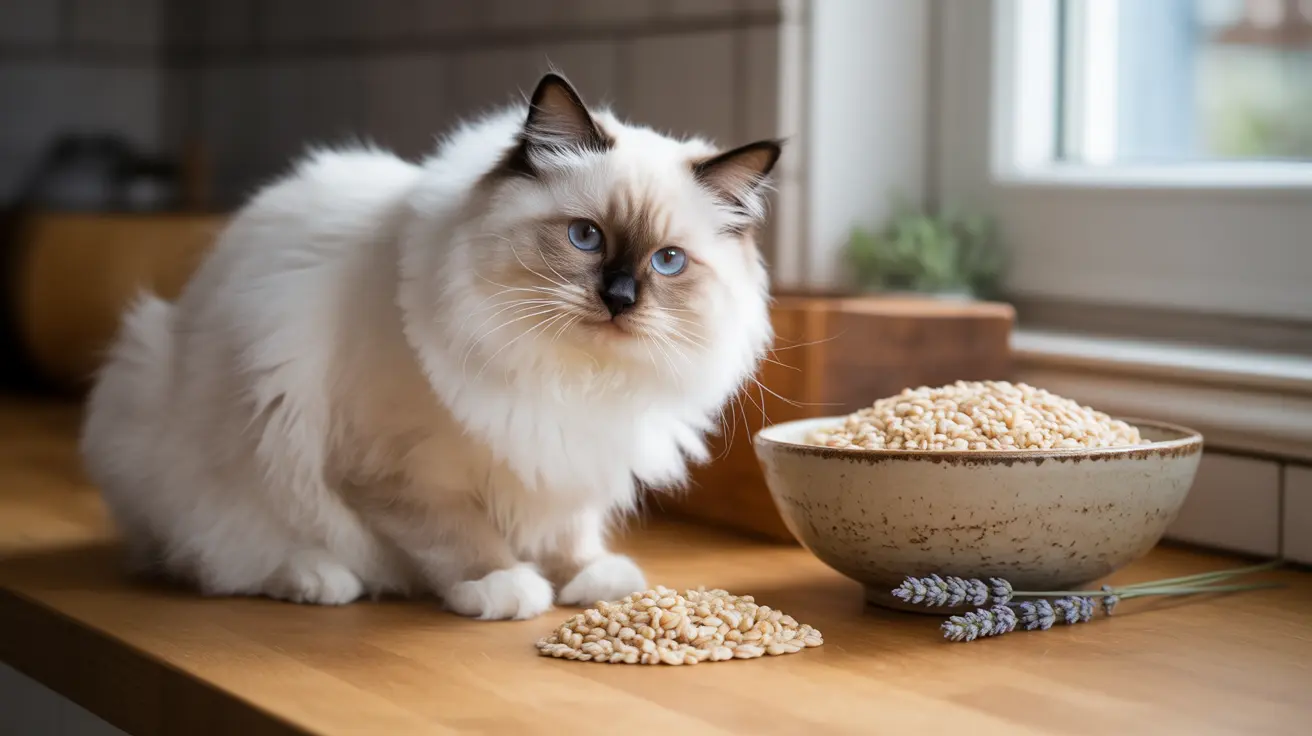Understanding Barley's Role in Feline Nutrition
While cats are obligate carnivores requiring primarily meat-based proteins, barley can serve as a beneficial dietary supplement. This ancient grain provides fiber, B vitamins, and essential minerals that can support your cat's digestive health when offered in appropriate amounts.
Benefits of Barley for Cats
Digestive Health Support
Barley's high fiber content can help promote healthy digestion and potentially reduce hairball formation. The soluble fiber in barley, particularly beta-glucans, can support beneficial gut bacteria and help maintain regular bowel movements.
Nutritional Components
- Dietary fiber
- B-complex vitamins
- Essential minerals
- Antioxidants
- Beta-glucan fiber
Safe Ways to Feed Barley to Your Cat
Cooked Barley
Always serve barley cooked and plain, without any seasonings or additives. Cooking makes the grain more digestible and helps prevent potential digestive issues. Start with small amounts mixed into their regular food to gauge their response.
Barley Grass
- A safe alternative to potentially toxic houseplants
- Natural aid for hairball control
- Source of chlorophyll and vitamins
- Environmental enrichment
Important Precautions and Limitations
- Never serve raw barley
- Limit portions to small amounts
- Introduce gradually to prevent digestive upset
- Consider it a supplement, not a meal replacement
Growing Barley Grass at Home
Many cat owners choose to grow barley grass at home, providing their pets with fresh, chemical-free access to this beneficial plant. It's relatively easy to maintain and can be grown year-round indoors.
Commercial Cat Foods with Barley
Some commercial cat foods include barley as a supplementary ingredient. While it can be beneficial in these formulations, ensure the food still maintains appropriate levels of animal protein as the primary ingredient.
Frequently Asked Questions
Is barley safe for cats to eat, and how much can I give them?
Yes, barley is safe for cats when fed in moderation. Offer small amounts (1-2 teaspoons) of cooked barley occasionally as a supplement to their regular diet, not as a primary food source.
Can feeding barley or barley grass help improve my cat's digestion or reduce hairballs?
Yes, the fiber in barley and barley grass can help improve digestion and assist with hairball control. The natural fiber aids in moving hair through the digestive tract more effectively.
Should I feed cooked barley or barley grass to my indoor cat, and how do I prepare it safely?
Both options are safe, but barley grass is especially beneficial for indoor cats. Cook barley thoroughly without seasonings, and either grow barley grass at home or purchase from pet-safe suppliers.
What are the risks or side effects if my cat eats too much barley or raw barley?
Excessive barley consumption can cause digestive upset, including vomiting or constipation. Raw barley should never be fed as it can cause digestive blockages.
Why do some commercial cat foods include barley, and does it affect my cat's nutritional needs?
Commercial cat foods include barley primarily as a source of fiber and to add bulk. When properly formulated, it shouldn't negatively impact your cat's nutrition, but the food should still be primarily meat-based.
Conclusion
While barley can be a healthy addition to your cat's diet, it should always be offered in moderation and properly prepared. Focus on maintaining a primarily meat-based diet for your feline friend, using barley as an occasional supplement rather than a dietary staple. When in doubt, always consult with your veterinarian about incorporating new foods into your cat's diet.






